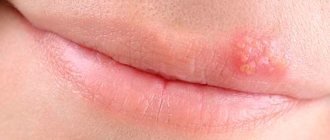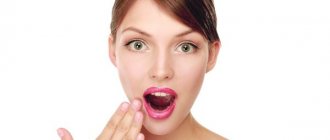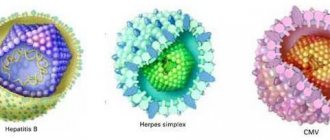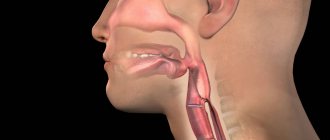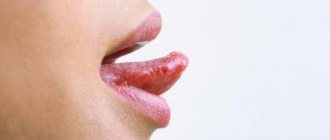Why do we drool in our sleep?
When we sleep, the swallowing reflex does not work and the facial muscles are relaxed. And since saliva is produced even during sleep, it may begin to drip through a slightly open mouth. As a result, we wake up on a wet pillow.
But there are other, more serious reasons why saliva flows from the mouth during sleep. These may be neurological disorders, stroke or normal nasal congestion.
Is it possible to reduce or stop hypersalivation? Of course! And here are some tips on this matter.
The structure of the salivary glands and the functions of saliva
There are major (parotid) and minor (sublingual and submandibular) salivary glands. Small ones are located under the oral mucosa, and large ones are localized beyond its borders. The parotid gland has 7 lobes, its duct opens on the upper jaw near the second molar.
The second largest gland is the submandibular gland; it consists of 10 lobules and is localized in the submandibular fossa. Its duct exits in the area of the frenulum of the tongue. The smallest is the sublingual salivary gland, which opens on the sublingual papilla. It is located under the mucous membrane of the floor of the mouth and consists of 18-20 lobules.
Daily saliva synthesis in adults normally does not exceed 1-1.5 liters. In older people it is slightly reduced. Pathological increased salivation during sleep occurs for several reasons and is called ptyalism, hypersalivation or sialorrhea. In this state, saliva production exceeds 1.5-2 liters.
The functions of the salivary glands are much more diverse than is commonly thought:
- Secretory function. Digestion begins even before food enters the stomach. At the sight of food, the salivary glands begin to secrete saliva, and its enzymes partially break down the food in the oral cavity. Then the food sticks together into a lump and moves unhindered through the esophagus.
- Regulatory function. The salivary glands are involved in the production of certain hormones (erythropoietin, parotin, renin, kallikrein).
- Excretory function . In case of renal failure, an increase in the amount of excreta in saliva is determined. Salivary fluid is involved in the excretion of certain hormones.
Saliva secretion occurs constantly, even during deep sleep. Usually at night the mouth flows due to increased salivation, and a person in a relaxed state does not have time to swallow the liquid in a timely manner.
Clear your sinuses of secretions
One of the main causes of drooling is nasal congestion, which forces a person to breathe through the mouth. To finally start waking up on a dry pillow, you just need to clear your sinuses of discharge. There are several ways to help do this:
Former Formula 1 boss Bernie Ecclestone has become a father again at 89
There is a luxurious monument at Samokhina’s grave, although she only asked for a cross
Inspired by the situation around the world, the girl created an original dress (photo)
- A hot shower will clear your nose and make it easier to breathe normally.
- Essential oils (especially those containing eucalyptus) can help you breathe more freely and improve your sleep.
- If there is severe nasal congestion, the situation will be improved by special vasoconstrictor medications.
It's also worth making sure that you treat any nasal infection as soon as it appears. Otherwise, you can provoke the appearance of various complications, such as chronic nasal congestion.
Hypersalivation and causes of increased salivation in a child
The main causes of pathological hypersalivation in children can be due to the following conditions:
- Pathologies of mental origin.
- Tumors in the brain or traumatic brain injury.
- Taking medications.
- Viral infection.
- Dental diseases.
- Congenital diseases or developmental abnormalities.
- Diseases or damage to the central nervous system.
- Poisoning with toxic substances.
- Worm infestation.
- Diseases associated with dysfunction of the gastrointestinal tract.
Looking at this impressive list, know that if you notice increased salivation in an infant or newborn child, this may be a completely normal physiological phenomenon. Babies continue to develop salivary glands.
Moreover, the peak of this process occurs in the second or third month of the baby’s life. At this time, he begins to produce much more saliva than usual. But the baby is not yet used to swallowing it. So it turns out that a lot of liquid flows from a tiny mouth day and night.
Change the position in which you sleep
This may seem quite obvious, but for some reason many people forget about this method of combating the night leakage of saliva. It is not surprising that this phenomenon occurs while sleeping on the stomach or side. Train yourself to sleep on your back so that all the saliva that is produced at night does not leak out of your mouth.
What to do if you have already repeatedly tried to start sleeping on your back, but in your sleep you still changed the position to a more comfortable one? Try using bolsters to gently stabilize your body position.
That's why increased salivation during sleep is an alarm bell
We will tell you why increased salivation occurs during sleep and what to do about it. This is worth paying attention to!
Why is saliva flowing?
Very often, the cause of increased salivation can be illness. This is how our body gives signals that something is wrong. It might seem like a small thing, but it is important.
- Runny nose Let's start with the simple and obvious. Very often, saliva flows precisely because of a runny nose. At night, the nose gets stuffy, breathing becomes difficult and the person opens his mouth. This is where increased salivation begins. This problem will resolve itself when the runny nose goes away.
© DepositPhotos - Infections in the mouth Saliva flows when there is an oral disease: inflammation of the mucous membranes and gums, caries or periodontal disease. Reproducing bacteria provoke the production and, accordingly, the release of an increased amount of saliva. Always remember to take good care of your dental health.
© DepositPhotos - Diseases of the gastrointestinal tract Inflammation, increased acidity, flatulence - all this leads to excessive salivation at night. In such diseases, salivation works as a protective measure: saliva dilutes gastric juice and reduces acidity. These symptoms should not be ignored so as not to lead to cholecystitis or pancreatitis.
© DepositPhotos - Helminthiasis Yes, that’s right, it’s not a myth at all. Of course, saliva flowing in a dream is not a 100% guarantee of the presence of worms, but they may well be present. Worms cause a change in acidity, which, as we have already said, leads to excessive salivation. There is a reason to get checked, get tested or carry out preventive measures.
© DepositPhotos - Nervous system diseases The symptom may occur during cerebrovascular accident, during Parkinson's disease or with trigeminal neuralgia. The same phenomenon is typical for syringobulbia, polio, vascular pathologies and even oncology.
© DepositPhotos - Endocrine system diseases Excessive salivation may be a peculiar reaction of the neuroendocrine system to some irritant. It can occur as a result of stress or endocrine diseases of the organs (thyroid gland, pituitary gland, hypothalamus). Sometimes observed in diabetes mellitus.
© DepositPhotos
Very often, nighttime drooling occurs due to bad habits. People who use drugs or smokers very often suffer from this unpleasant symptom. There is only one recipe - it's time to quit this bad habit.
So what can you do to get rid of nighttime drooling? To begin with, we recommend understanding the cause of its occurrence. If there are no visible reasons, then this is a serious reason to go to the doctor.
To prevent nighttime drooling, you can try changing your sleeping position. If you fall asleep on your side, try to retrain yourself and start falling asleep on your back. If this does not help, you can try placing the pillow higher. Then the head will rise and the mouth will not open.
© DepositPhotos
It is important to ensure that your nose is not stuffy. You can try rinsing your nose or doing inhalations. Taking a hot shower before bed helps a lot, because steam works similar to inhalation.
You need to monitor your health, but don’t sound the alarm if you see saliva on your pillow one morning. Sometimes this can happen if your sleep was deep. This means that you are completely relaxed and your body simply no longer controls the muscles of your mouth. And this is not scary at all, quite the opposite.
Check if you are suffering from sleep apnea
Apnea is a disorder characterized by short-term pauses in breathing. As a result, a person's sleep is very often interrupted during the night; in the morning he wakes up feeling tired and wants to sleep all day.
Blogger Navin Bommakanti told which women make men fall in love with them
An expert warns what signs a car might be about to be stolen.
Every year I marinate garlic with hot pepper. Makes a great appetizer for the table.
Heavy snoring can be one of the signs of sleep apnea. If you suspect you may have this disorder, be sure to contact your healthcare provider for evaluation.
Please note that breathing problems can also be caused by smoking. If you have such a bad habit, it is better to get rid of it as quickly as possible.
Inflammatory processes in the mouth
Let's find out why drool flows from the mouth with a white residue on the lips during sleep? Another problem that causes excessive saliva secretion from the mouth during sleep is inflammation in the oral cavity. Ignoring simple hygiene rules contributes to the manifestation of pathologies of the gums and tooth enamel. In turn, inflammatory processes develop:
- purulent formations on the periodontium;
- periodontitis;
- gingivitis.
In this condition, in addition to pronounced salivation, a person experiences bad breath, painful sensations in the gum area, and saliva with a whitish residue on the lips. It should be noted that in such a situation, saliva is produced in the form of a protective reaction. But this is not enough to eliminate the disease that has arisen. Therefore, a person in such a situation is recommended to visit a doctor.
Have surgery
If you have already tried many methods, but none of them have brought positive results, you should think about visiting a specialist. First, he will recommend a few more methods to fix the problem. If they also prove ineffective, the doctor will suggest surgery to remove the glands. Most often, this is observed in the presence of serious neurological diseases, in which hypersalivation is the least of the troubles.
Found a violation? Report content
Angina
This disease is accompanied by intense pain in the throat and severe salivation, especially at night. In addition, the patient's temperature rises, the tonsils swell and turn red, and general weakness is felt. With angina, excessive secretion can be observed for about a week. This is how the body tries to protect itself from the attack of dangerous bacteria. This symptom signals the proliferation of pathogens in the oral cavity. And the body’s first reaction to the development of the inflammatory process is an abundant flow of saliva, with the help of which microbes are removed. This is why drooling occurs during sleep.
More serious reasons
One of the biggest reasons why your mouth may be slightly open at night is because you can't breathe well through your nose. We usually breathe through our nose, but if we have a runny nose or congestion for other reasons, we are forced to breathe through our mouth. If this happens in a dream, then we begin to drool on the pillow. Nasal congestion can be one of the symptoms of a cold or result from allergies. Additionally, a deviated nasal septum can block the nose and encourage mouth breathing.
Why do you give plastic straws for coffee if you can’t drink through them?
How witches identify their own by the sign on the palm (lines in the shape of an eye give everything away)
The grandson of Genka Lyapishev from “Big Change” looks like him like two peas in a pod
As a result of this obstruction, snoring or sudden cessation of breathing during sleep may be associated with drooling.
In addition, excessive drooling may occur due to medications or other medical conditions. It can also be associated with difficulty swallowing, which can occur as a result of a brain injury, stroke, or even Parkinson's disease.
In some cases, the situation will continue throughout the day. It may also be associated with gastroesophageal reflux disease or heartburn.

